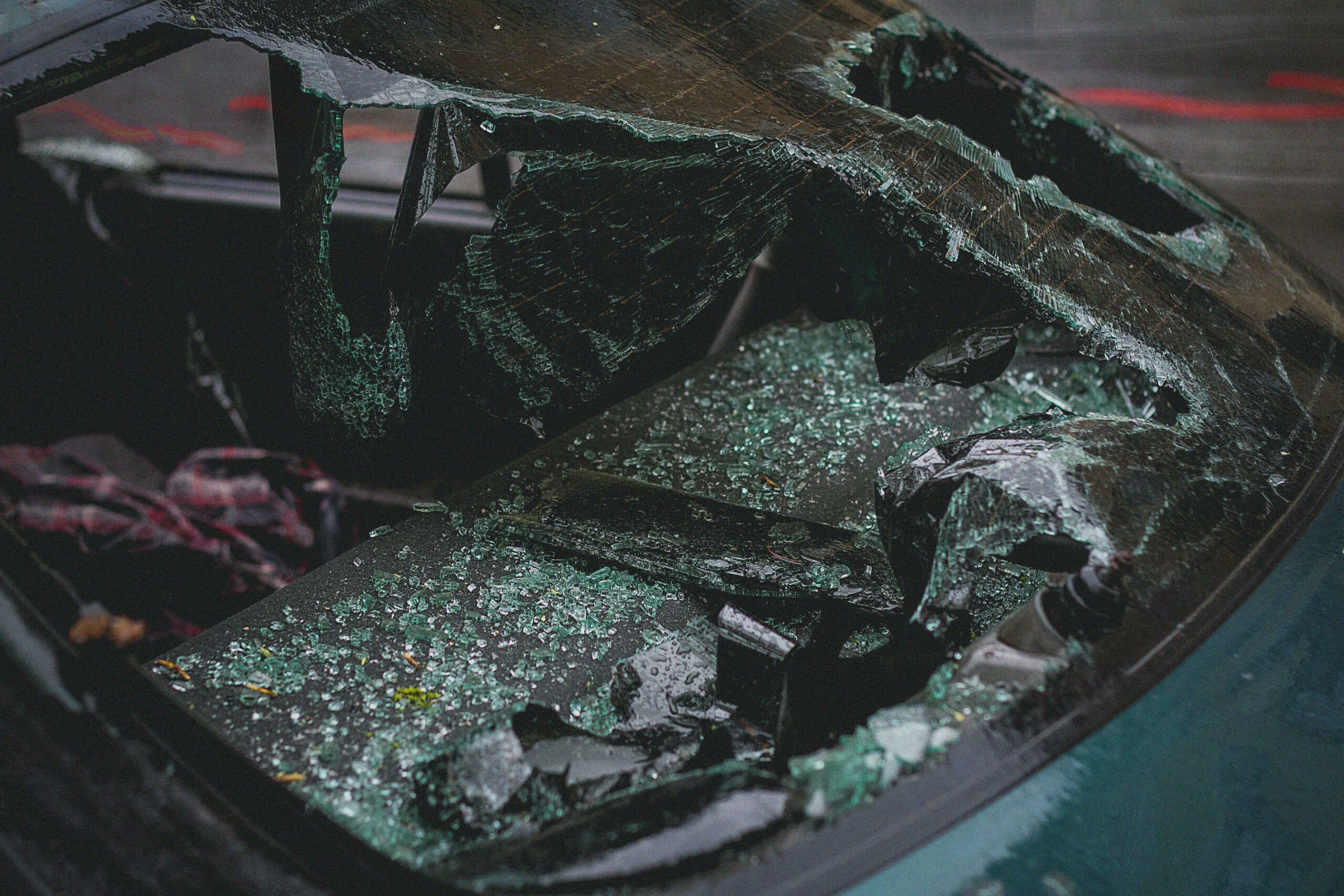A while ago, I made a rather major decision in my life. I resigned as a trainer and communications officer from the PSAP I had called home for nearly eight years to transition into the role of a “Traveling Dispatcher” and QA Evaluator with a private 911 Support Services company. Saying goodbye to a career in public safety that I had built through sweat, tears, and many sleepless nights was heavily bittersweet, and even on my last day there as I answered my final calls as, “Operator Number 2554,” it just felt so surreal. There were many in my circle who were filled with disbelief at my decision. One, a good friend and former coworker, was the first to hear of the news of my turning in my notice to resign. I broke the news to him over dinner at a local diner close to our job. He stared at me with his eyes stretched wide and his mouth ajar as the words spilled out, “Not you! You were supposed to stay here forever!”
In the previous blog, “The Truth About Why We Stay,” I shared my thoughts on the “quiet hitters” who choose to stay in 911, making the most of a profession that continues to remain underappreciated and underpaid. I recognized how the job of emergency telecommunications is a tough one but for some it is a lifestyle, and a passion, and it provides them with the satisfaction of knowing that their life and work brings tangible (and intangible) value to so many people. For the reasons we could give for why anyone would not want to commit to such a life of service in public safety, there are multiple other reasons for why this field is rewarding and appeals to the most compassionate qualities of our better human nature.
But what about those who do leave 911? What about those who have reached the burnout phase, or have lost the love in their heart for the job, or can no longer feel the fire in their bones for the lifesaving, community-oriented work that they do beneath the headset? Why do some people leave this profession, and what can we ultimately learn about retention in this industry from those who do choose to walk away? What drives a passionate, committed, and loyal headset hero to hang their headset up for good?
“What drives a passionate, committed, and loyal headset hero to hang their headset up for good?”
You have probably heard it said before that people don’t leave bad jobs, they leave bad bosses. Of course, there are myriad reasons why people leave their jobs. They leave bad work cultures and bad coworkers. They leave organizations with lazy leadership or ineffective supervision. They leave for respect or for better support. They leave places where they feel undervalued or persistently overlooked or misjudged. Sometimes, they leave because they can feel their love for the job waning and they realize that they need a new environment, and new challenges, to reinspire them. Sometimes, they leave because they can feel the burnout setting in and they would rather leave with the love they have left for the job than to stay and feel it slowly be replaced with jadedness and bitterness about everyone and everything. Sometimes they leave because organizations change, and people change too. And then, sometimes people leave because they simply can no longer see themselves in the future of that organization.
The fact is that leaving doesn’t make anyone a quitter. There are valid reasons for staying but there also very good reasons to leave, and in this blog, we will explore more on this. Personally, my reason for leaving was born from me wanting to grow in a different space. I discovered an incredible truth: there are many ways to serve and advocate for this industry even if you don’t wear a headset.
.”..If we can learn from the people who choose to stay… then certainly we can also learn something from those who choose to leave…
The Great Resignation is still upon us… In 2024, Gen Z and millennials are still turning in those resignation notices and bidding their jobs goodbye in favor of seeking work where they can receive better professional support, find more encouragement to pursue educational opportunities for professional growth, and just have overall better job satisfaction. These are highly college-educated generations who are into seeing a bigger future for their career paths, beyond just government benefits and job security. They are looking for personal and emotional fulfillment, wellbeing, and thriving at an organization that will allow them to grow and will grow right along with them. It’s not just about the “bad job” or the “toxic leadership.” It’s about escaping the job that feels like it is daily “dead-ending” the talents, passions, and ambitions of great young employees. It is about escaping leadership that is more inclined to clip wings and curtail dreams in order to maintain the status quo in their organizations. People are resigning from every industry and public safety is far from the exception. Since becoming a traveling dispatcher, I get to assist some of the most critically understaffed emergency communications centers in the country, so I see all too closely how this staffing crisis affects 911. But the truth is, until something changes, nothing will change. If people don’t leave bad jobs (they leave unfulfilling work, stagnant work environments, and unsupportive leadership), then how can we change the tide to keep more of our people in the seats and happy beneath the headsets?
It starts with doing something very uncomfortable… Being willing to listen to the things you may not want to hear. We need more “pre-exit interviews” as in more conversations, more discussions and engagement with employees who are feeling burnt out, jaded, resentful about the job, resentful about leadership or their work environment, and may already have one foot out the door. It might not be what you want to hear but there really is value in knowing what is driving our folks out the door, from the seasoned veterans to the newer generations as well. We need more eye-opening surveys like the one recently conducted by the National Emergency Number Association (NENA) and Carbyne, which revealed in its impressive, but sobering results that the state of 911 personnel all over this country (call-takers, dispatchers, supervisors, and administrators) is plagued by anxiety, burnout, job fatigue, and mental health issues. We need more hard table talk discussions with people who are willing to be honest and transparent about what is not working in 911 and how we can continue to grow this industry in our changing times.
People leave organizations where they don’t see how they matter to the bigger picture.
People leave organizations where they don’t see how they matter to the bigger picture. It’s not enough to bring change or rewrite policies or develop new organizational goals and not include the frontline dispatchers in these changes (the ones who are the most affected by the policies and goals). You can have a very diverse workforce and take pride in this fact, but if your organization is not leading conversations about diversity, equity, and inclusion or has no workplace sensitivity training in place for your employees, then you won’t make the progress you need to be making to support these diverse groups. You can have the most productive, most robust, and well-developed training curriculum and program in your center, but if your CTOs don’t feel supported and appreciated, they will not feel loyal to that training program. You can talk the talk about resiliency and mental wellbeing but if you are not proactive about implementing new ways to reduce stress in the workplace, or innovative about trying out alternative solutions to provide your frontline staff with relief, then all those talks will fall on deaf ears. Dispatchers don’t owe it to their centers to stay in environments where they are burning out to a crisp or losing their joy for the job. Resiliency was never a concept intended to combat toxic leadership or toxic behaviors from coworkers. If you know your centers can do better about making the work culture safer or more inclusive, then leaders, please, stop allowing toxic practices under your watch.
Finally, this profession can be the most amazing work if you want it to be! If you make it that way! But just like every other aspect of this job, collaboration and teamwork must happen also to make the workplace culture a positive one. In our line of work, the constant negativity and the darkness can truly abound. It’s our job to take some of the worst calls in some of the worst moments in people’s lives, but we deal with enough negativity from the outside of the four walls of our ECC, then to also have to deal with it inside on a 12-hour shift from the people closest to us.
I recently learned of a dispatcher who decided to leave their job after six years for an overnight role as a stocker at a grocery store. Her reasoning was simply this: “It’s less stress. I’ll get paid more an hour. And, oh yeah, I don’t have to sit through hours of gossip and drama.”
If we can learn anything from those who leave this job, it’s that most of the time it is preventable. The work that we do is life-saving work, but if we are going to retain people in the seats then they want to feel like their lives matter as well. No one wants to feel like just another number. They are more than just operator numbers. They are people who bring skills, emotions, talent, personality, and a willing heart to help others. Support has to begin at the top, but it must trickle down to the floor.
“Are we spending more time gossiping behind people’s backs than lifting them up, praising their work ethic, celebrating each other?”
Are we spending more time gossiping behind people’s backs than lifting them up, praising their work ethic, celebrating each other? Retention must be an all-hands-on deck effort. It’s not just on supervisors, managers, and administrators, it’s on the frontline staff as well to care enough to make their work environment “workable” again for everyone. Because we are losing too many of our best and brightest in such a worthy profession to other jobs, and that is not acceptable.










